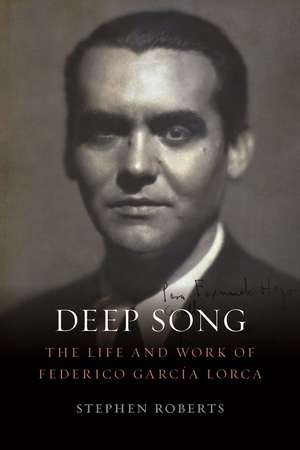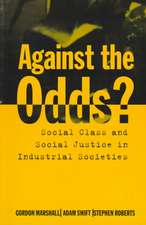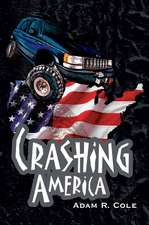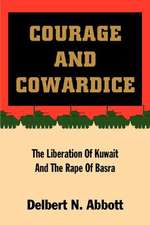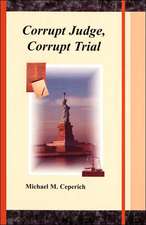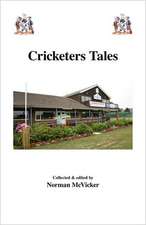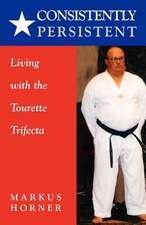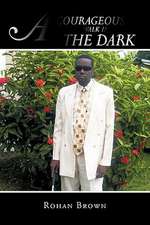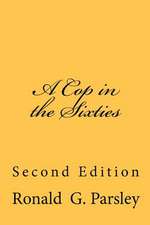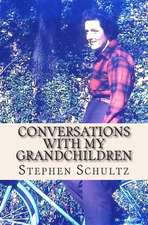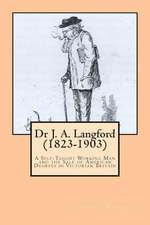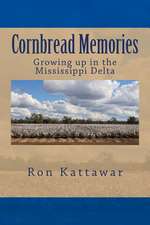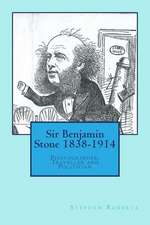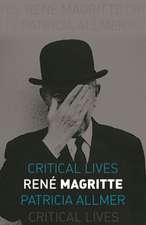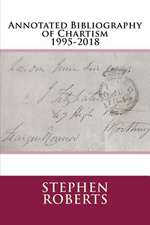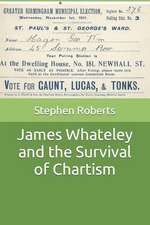Deep Song: The Life and Work of Federico García Lorca
Autor Stephen Robertsen Limba Engleză Hardback – 11 sep 2020
But Lorca’s fame could not survive politics: his identification with the splendor of the Second Spanish Republic (1931–36) was one of the reasons behind Lorca’s murder in August 1936 at the hands of right-wing insurgents at the start of the Spanish Civil War. In this biography, Stephen Roberts seeks out the roots of the man and his work in the places in which Lorca lived and died: the Granadan countryside where he spent his childhood; the Granada and Madrid of the 1910s, ’20s, and ’30s where he received his education and achieved success as a writer; his influential visits to Catalonia, New York, Cuba, and Argentina; and the mountains outside Granada where his body still lies in an undiscovered grave. What emerges is a fascinating portrait of a complex and brilliant man as well as new insight into the works that helped to make his name.
Preț: 192.44 lei
Nou
Puncte Express: 289
Preț estimativ în valută:
36.83€ • 38.31$ • 30.87£
36.83€ • 38.31$ • 30.87£
Carte disponibilă
Livrare economică 20-27 februarie
Livrare express 06-12 februarie pentru 40.90 lei
Preluare comenzi: 021 569.72.76
Specificații
ISBN-13: 9781789142372
ISBN-10: 1789142377
Pagini: 288
Ilustrații: 38 halftones
Dimensiuni: 159 x 235 x 15 mm
Greutate: 0.5 kg
Editura: REAKTION BOOKS
Colecția Reaktion Books
ISBN-10: 1789142377
Pagini: 288
Ilustrații: 38 halftones
Dimensiuni: 159 x 235 x 15 mm
Greutate: 0.5 kg
Editura: REAKTION BOOKS
Colecția Reaktion Books
Notă biografică
Stephen Roberts is associate professor and reader in modern Spanish literature and intellectual history at the University of Nottingham. He has published widely on the literature and thought of Spain between the 1890s and 1936, as well as on the figure of the intellectual in Spain.
Recenzii
“Deep Song is rich with Lorca’s words and makes one eager to revisit them. . . . Lorca is an intensely mythologized figure, and Roberts is careful not to tell the story of this life in teleological terms, unfolding towards the tragedy of Lorca’s assassination of the hands of nationalist militia. Roberts deals with sexuality, class, religion, and politics, but not in such a way that sees these things as inevitable precursors to Lorca’s later life. Rather, we get a vision of Lorca as joyous, complex, and experimental, trying his hand at different forms, obsessions, and the possibilities of his art. . . . Deep Song [is] richly textured with Lorca’s own words, and makes for a flowing, thoroughly enjoyable introduction to the life as a lived and passionate thing.”
"There is a swift, sharp style that gives the concise biography major appeal. It's a good entry point to Lorca's work. Roberts also provides a nice mix of analytical theory on Lorca's poems and plays alongside colorful kiss-and-tell gossip from Lorca's adventurous, libidinous pursuits. Some caused more heartache and stress than others. An obsessional crush on Salvador Dali went on for many years, but Lorca could never quite sweet-talk the surrealist painter into bed."
"Roberts's new study of the life and work of the Spanish writer Federico Garcia Lorca is profoundly faithful in spirit to the poet's plays and poetry and the complex background from which his works emanated. . . . The 240-page work is biographical in large part, but Roberts's vision never loses sight of the work, endlessly illuminating Lorca's simple yet oftentimes obscure art. In short, Deep Song is the perfect point of entry for beginning to understand the entire picture."
“It takes a certain confidence and clarity of intent to present a new biographical offering about such a well-known and vivid figure, with the faces of worthy predecessors gazing down like Lorca’s floating face in Salvador Dalí’s paintings. . . . For those whose interest includes the details of how Lorca’s writing came to be and how it is linked to daily life and culture where he lived, Roberts offers a rewarding tour that, however detailed, never gets tedious. . . . Roberts makes clear that Lorca was uniquely positioned in time and space to be the great flame of literature that he became, as he gathered artifacts of rural and religious culture, in some cases filtering his writing through a remarkable array of creative friends and acquaintances.”
“Roberts makes a useful addition to the body of biographical treatments of the great Spanish poet and playwright. Deftly assessing García Lorca's development as an artist, beginning with his earliest poetry as a teenager in Granada, Rogers examines the writer's artistic experimentation once he installed himself in Madrid and later as he traveled to New York, Cuba, and Buenos Aires. Of particular interest is the examination of the early work, seen by Roberts as testimony to a conflicted relationship with the narrow bourgeois perspective of García Lorca's natal city of Granada. Roberts makes good use of a concept he calls the ‘psychogeographical’ as he ponders the young poet's keen interest in the environment of Andalucía and its Moorish past, and he provides useful insights about García Lorca’s debt to modernismo—especially the work of Rubén Darío and the poetry of the Siglo de Oro. Most useful is the analysis of García Lorca’s work as he transitioned from child prodigy to accomplished writer in the span of his short life (he died in 1936, at the age of 38), becoming in fact a pivotal figure in the influential Generación del ’27 group. . . . Recommended.”
“This book belongs to the conventional ‘life and works’ genre that presents a relatively brief general overview of a writer’s biography and literary output. Lorca is hardly ill-served when it comes to works of this sort, but this one now supersedes many of them and stands among the best. . . . Deep Song will provide for the general interested reader a lively and often evocative account of Spain’s best-known twentieth-century writer, and should inspire them to delve more deeply into Lorca’s life and, particularly, his work.”
"In a relatively short volume, Roberts is able to provide a concise yet comprehensive account of both Lorca and his work, along with a clear sense of the historical context which shaped them."
"Roberts skillfully fashions the biography of García Lorca's short life into a seamless continuum, divided into eight brief periods with vivid attention to geographic settings. As distinguished from other biographies, Roberts's take a close-up, intimate view of this poet-playwright, portraying him as a kind of Lorca from within. At this same time, this intimate vision does not eschew the broader social picture with rarely considered economic tensions that help account for Lorca's ignominious liquidation."
"In this beautifully written, sensitive book, Roberts moves fluidly and intelligently from biography to oeuvre through a keen sense of the evocations of place. In this way, we are immersed into the worlds occupied by Lorca in such a way as to capture a sensual and intimate understanding of the enduring significance of Lorca’s life and work."
